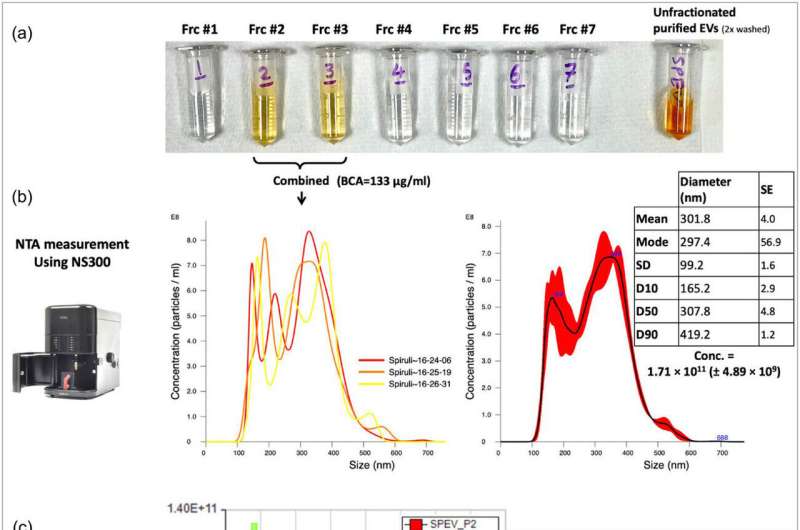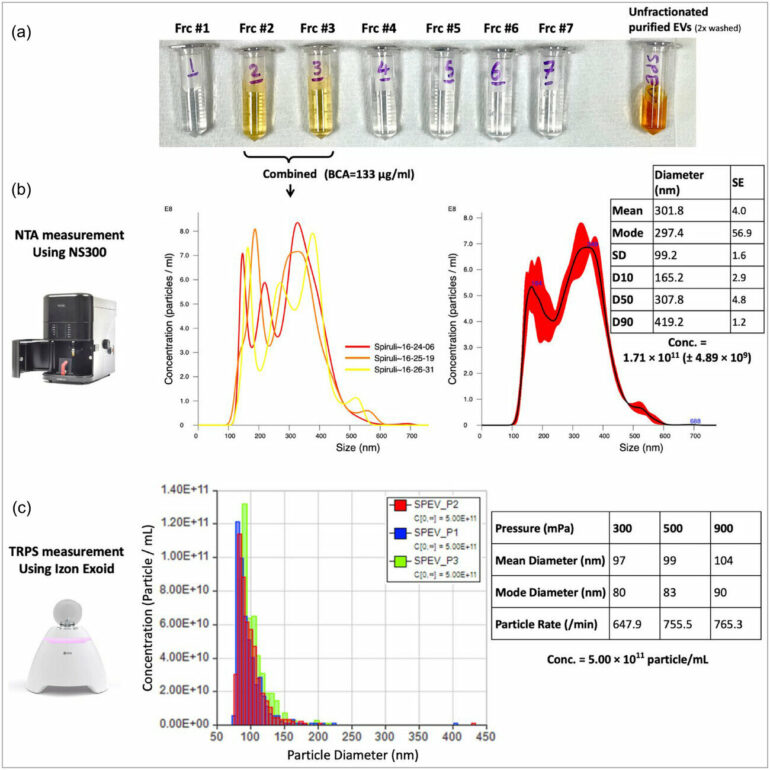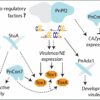JCU researchers have found particles in the popular “superfood” Spirulina that could lead to significant advancements in vaccine production and effectiveness.
The research paper, led by Dr. Farouq Sharifpour, DVM, Ph.D. from JCU’s Australian Institute of Tropical Health & Medicine (AITHM), and published in the Journal of Extracellular Biology, investigates Spirulina extracellular vesicles (SPEV) and their potential therapeutic benefits.
While safely testing on mice, Dr. Sharifpour and his team found that said SPEV has huge potential as a new class of vaccine adjuvant (substances added to vaccines to make them more effective).
“We were working on Spirulina on a totally different project, but when we realized that nobody has previously worked on extracellular vesicles, or reported on extracellular vesicle isolation from Spirulina, we jumped at that chance,” he said.
“We injected them directly into mice, and we found instantaneous pro-inflammatory effects, meaning that they boost inflammation. This was not the sort of inflammation that harms you, it’s an inflammation without any adverse effect.
“Through several exposures, several injections in mice, it still had this pro-inflammatory effect and from there we thought if it elevates immunities, and if it boosts immune response without any adverse effects, why not use it as a vaccine adjuvant?”
Spirulina has been consumed by humans for thousands of years, with more recent studies showing these cyanobacteria are useful for many chronic conditions including diabetes, obesity, cancer and intestinal health.
Using several techniques, including transmission electron cryomicroscopy (where samples are studied at cryogenic temperatures), Dr. Sharifpour and his team were able to isolate and identify SPEVs and their specific proteins.

Size distribution and concentration of the isolated SPEV using two different technologies. © Journal of Extracellular Biology (2024). DOI: 10.1002/jex2.70025
“We injected the mice with these antigenic proteins, with this vaccine antigen and we realized that compared to when you inject this vaccine antigen alone, the Spirulina elevates the immune response to that specific protein by around 1000-fold,” he said.
“It was certainly surprising and it’s very much comparable to chemical adjuvants that are used in the vaccine industry today, which generally have some adverse effects.
“We didn’t see any adverse effects in the mice, and we are hoping that SPEVs can be used in the next generation of adjuvants. However, more experiments need to be done.”
Dr. Sharifpour and his team extracted and attempted to identify which proteins were responsible for which immunological effect using a technique called mass-spectrometry.
The lead author, Dr. Sharifpour has also managed to genetically modify Spirulina to express non-native proteins.
He believes that genetically engineered Spirulina EVs could be used as self-adjuvating vaccines, eliminating the need for separate production of vaccines and adjuvants.
This genetic engineering of Spirulina to produce vaccine antigens and EVs is a cost-effective solution for vaccine production, with potential benefits including affordability and scalability.
“Since Spirulina is very, very affordable in culture, you can have a large amount of Spirulina at a fraction of the cost of other subunit vaccines that we have today,” he said.
“It could potentially lead to a paradigm shift in the vaccine industry. We can produce farms of genetically engineered Spirulina so that they produce this vaccine antigen, and we can harvest EVs from them and then inject it into individuals to make it more affordable.”
More information:
Mohammad Farouq Sharifpour et al, Characterization of Spirulina‐derived extracellular vesicles and their potential as a vaccine adjuvant, Journal of Extracellular Biology (2024). DOI: 10.1002/jex2.70025
Provided by
James Cook University
Citation:
Unlocking Spirulina secrets to supercharge vaccines (2025, January 2)



